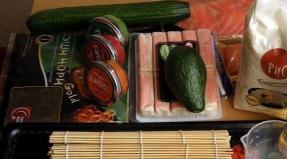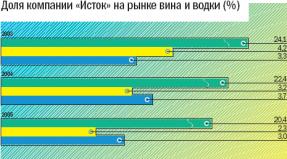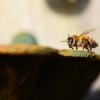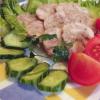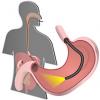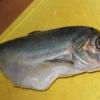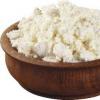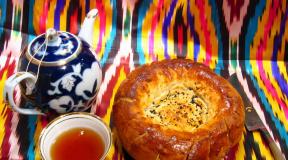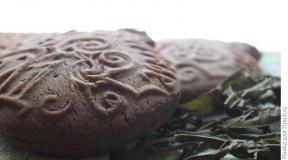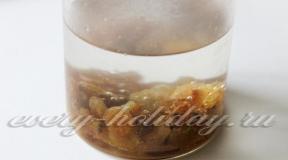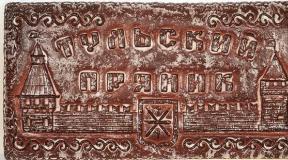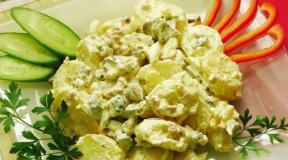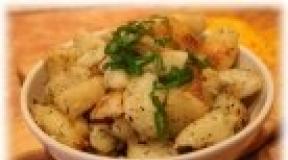What is kosher food for Orthodox Jews? Kosher food concept
In view of my upcoming trip to Israel, and the fact that many posts with descriptions and photos of local cuisine await you, I want to tell you in more detail what kosher food is.
What can and cannot be eaten? These laws have been determined by the Torah for more than 3000 years and the Jews have been following them for the same amount of time. The very concept of "kashrut" refers not only to culinary, but also to legal and cultural issues. But we will focus on food.
Meat
Meat of ruminants and cloven-hoofed animals can be eaten. The famous "Jews do not eat pork" is explained not by taste preferences, but by the fact that the pig is artiodactyl, but it does not chew gum, and therefore is unsuitable for food.
An animal that is sick or killed during a hunt is not suitable for food. Forbidden fat near the stomach and intestines, as well as the thigh, from which the sciatic nerve has not been removed (in memory of the forefather Jacob, whom an angel wounded in the thigh).
The quality and kosher of the meat is monitored by a butcher who knows how to properly butcher and mashgiach: he makes sure that only the front parts of the animals are used, the forbidden fat and blood are removed, and then puts an approving seal confirming kosher.
in 1998, McDonald’s changed its technology for making hamburgers for Jews. In Israel, meat for snacks is not cooked in a frying pan, but over coals.
Fish
Scales and fins are signs of kosher fish. Catfish, eel will not appear on the table of those observing kosher, as well as the rest of the sea creatures: lobsters, shrimps, oysters, crabs. Red caviar is considered kosher, black caviar is not.
Bird
Traditionally, poultry meat is allowed: chickens, geese, turkey and pigeons. Non-kosher animals include an owl, an eagle, and a pelican. Many names in the descriptions of birds from the Torah have not been identified.
Amphibians, insects and arthropods
The Torah forbids the eating of worms, frogs, snakes and insects. It is only allowed to eat four types of locusts :)
Dairy and meat products
It is forbidden by the laws of kashrut to mix dairy products with meat products. So the sausage and cheese sandwich is canceled. The time interval between meat and dairy food is 6 hours. Between dairy and meat - only 2.
Bread
Homemade bread made by a non-Jew is not kosher, and can be consumed from a non-Jewish bakery if all ingredients are kosher.
Wine
Wine produced by non-Jews is not kosher.
Training
Linen and utensils for eating meat and dairy foods should be stored separately. In wealthy houses, the kitchen is divided into dairy and meat.
Many peoples have traditions and prohibitions associated with restricting the consumption of certain foods. In Russian cuisine, prohibitions, as such, do not exist: we simply do not eat what we are not used to, or what seems unacceptable to us, and therefore there is no need for official prohibitions.
But everyone in Russia has probably heard about the prohibitions that exist for Muslims and Jews. Most often it is mentioned that Muslims should not eat pork, but with Jewish cuisine it is more and more complicated: there are more prohibitions in it, and many of them may seem strange and incomprehensible to us.
Food permitted for consumption is called kosher in Israel, and Jews living in other countries and strictly observing the "faith of the fathers" include only kosher foods in their diet. The origin of the word "kosher" goes back to the concept of "kashrut", which in Judaism denotes compliance with Halakha - traditional Jewish law based on many religious commandments. It's so difficult; however, the requirements of Jewish law for food are quite close to the concepts of healthy and separate nutrition. For example, it is strictly forbidden for Jews to mix meat and dairy products, and this is correct, since they are completely incompatible with each other.
Perhaps for this reason, not only Jews are interested in kosher products in Russia, and many people want to know more about this.
Kosher - Not Kosher
Kosher meat products are derived from the meat of land-based herbivores. These are ruminant hoofed animals, but their hooves are forked: sheep, goats and cattle; elk and giraffe meat is also allowed. Pork, rabbit and camel meat are prohibited. It is forbidden to consume blood in any form, therefore, the meat of kosher animals is always soaked and washed in special ways. It is also necessary to slaughter animals according to the rules: this is done by kosher butchers who have undergone special training.
The next kosher dish combines two whole Hebrew recipes. To bake a delicious chicken in a haroset, you must first cook the haroset itself - a truly Jewish dish made of fruits, nuts, pomegranate juice (wine) and spices. We must take 1-2
Torah- a religious Jewish book, contains instructions on how a Jew should eat. The permitted food, according to these regulations, is called "kashrutu", which means "fit."
What is included in kosher meals?
- The meat must belong to both equid-hoofed and ruminant cattle, which must be herbivorous. For example, a pig is an artiodactyl and omnivorous animal, which means that its meat is strictly prohibited for the Jews.
- Milk from kosher animals.
- Eggs of non-predatory birds (a distinctive feature is the presence of a blunt and sharp end).
- Fish with fins and scales. Thus, it is forbidden to eat catfish or shark meat, for example.
Prohibitions and rules
It is forbidden to include in the diet of birds of prey, rodents, insects, molluscs, crayfish.
IN Shabbat(the seventh day of the week) it is forbidden to light a fire, therefore, only cold snacks or simmered dishes are eaten on this day.
Also on holiday Passover it is forbidden to eat bread and other products made from five cereals mixed with water, in other words, flour.
The law, spelled out in the Torah, “do not cook a kid in its mother’s milk” means that meat and dairy products cannot be cooked together, moreover, it is forbidden to eat them at the same time. From the moment of the last meal, it must take from 3 to 6 hours to be allowed to eat the sour milk product.
Eggs with blood clots are considered non-kosher, since according to belief, the soul is blood and as long as there is blood in the animal / embryo, it cannot be eaten. This applies to meat, fish and poultry. Interestingly, only the front part of the carcass is suitable for eating, since the sciatic nerve is located in the back, which is prohibited. It is extremely difficult to separate it from the meat, so it was decided to abandon this part entirely.
There are certain slaughter rules - shechita... A person specially trained for slaughter is called shoyhet. Compliance with all norms is very sensitive, since failure to comply with at least one condition makes food not kosher.
What are the rules?
First, no animal should see another slaughter. Secondly, it should not be nervous, so the shoychet's hand should be firm, and the knife as sharp as possible in order to facilitate death. During slaughter, you need to stop any attempts of livestock or birds to move, otherwise the animal will experience pain. You need to cut in a certain place, it is on the neck.
The animal must be healthy, therefore, immediately after the slaughter, an autopsy takes place and the internal organs are examined. In order to maintain the health of livestock during life, it is forbidden to use hormones, antibiotics, growth activators, etc. This also applies to plant foods.
Then they allow all the blood to drain, they can put it in salt so that it absorbs the remnants of the blood, or drive it out by squeezing it out. As mentioned above, if the meat contains at least one blood clot, this will make it unfit for food.
At the same time, in Switzerland, Sweden, Denmark and the Netherlands, shechita is prohibited by the law on the protection of animals as an inhumane method of slaughtering livestock.
There is also a restriction on the use of wine. Wine in Judaism is a sacred drink; it can be seen on the table only on Saturdays, in honor of holidays or family ceremonies. Wine of strictly Jewish origin is considered kosher.
Kosher food in different walks of life
Kosher requires strict production controls, which is why all kosher products have a certification mark. In countries where Judaism is very widespread, there are cafes and restaurants that include kosher dishes on their menu. Also, many airlines provide kosher meals. For example, Aeroflot provides passengers with kosher meals free of charge, you just need to submit an application 36 hours before departure.
Kosher and Halal
Halal means "what is permitted by Allah", adheres to the rule "everything is allowed that is not forbidden in Islam." Most often, halal food is consumed by Muslims.
There are many differences between halal and kosher, but in some ways they are similar. For example, the ban on pork. However, some things that are considered acceptable for halal are forbidden for kosher. All kosher foods are halal, but not all halal foods are kosher.
Kashrut is a system of ritual rules that determine the compliance of something with the requirements of Halakha, Jewish Law. The laws of kashrut are based on the commandments of the Torah, as well as additional rules established by Jewish religious authorities, mainly in the Mishnah and Gemara, which together form the Talmud (Oral Torah).
Usually the term " kashrut”Is used in relation to the set of religious prescriptions related to food, but it is also applied in other aspects of traditional life - from legal (for example, the competence of witnesses) to everyday (choice of fabric) and ritual (tefillin, tzitzit).
Kashrut food
Kashrut laws may vary slightly in different Jewish communities. The biggest differences exist when observing Easter bans. The kashrut rules also differ for different currents within Judaism, for example, for especially believers there are especially strict rules, the so-called glath kosher(Yiddish גלאַט כּשר - "simple / strictly kosher").
Kosher meat
Land animals
Only meat from animals that are simultaneously ruminants (strictly herbivores) and artiodactyls (with cloven hooves). These are herbivores such as cows, sheep and goats, as well as: moose, gazelles, mountain goats, giraffes, etc.
The Torah lists four types of animals that have only one of the two signs of kosher. These are a pig, a camel, a hyrax and a hare. These animals are prohibited from food. Thus, pork is not kosher because the pig does not chew gum, not because the pig is dirtier than other animals.
Birds
The Torah does not define any traits for kosher birds. She simply lists the birds of clubs. Among them are such as an eagle, an owl, a pelican. Since today it is not possible to accurately identify all the birds of clubs listed in the Torah, only domestic birds are eaten, about which there is a tradition of kosher. These are chickens, ducks, geese, turkeys and pigeons.
Bird eggs must necessarily have different ends: one sharper, the other more rounded. Eggs of those species of birds that have the same ends: either both are sharp, or both are blunt - you cannot eat (usually such birds of prey or scavengers). Since blood is strictly prohibited for consumption, eggs that contain a blood clot are non-kosher.
Unknown biblical animals
The meaning of the names of some animals mentioned in the Pentateuch in connection with kashrut has not been precisely established by researchers. Among them: " anaka» , « summer» , « khomet», « tinshemet» , « hargol» , « hagav» , « solam».
Slaughter of livestock and poultry ( shechita) and koshering of meat
The laws of kashrut also apply to the process of slaughtering an animal. For meat to be completely kosher, it must meet several requirements:
There are also special laws for the ritual preparation of a knife with which an animal will be slaughtered - how to sharpen a knife, check that there is not the slightest chink on it, etc .; laws about where and how to cut (with just one movement and only the throat in the region of the carotid artery). The meat of properly slaughtered animals, whose health has been irreparably damaged, is not kosher.
The Torah forbids eating blood. Therefore, the meat is soaked in water at room temperature, and then placed on a special salting board and sprinkled with coarse salt. Salt absorbs blood. After that, the meat is thoroughly washed.
Sho (th) het usually studies in a yeshiva for many years to gain a general knowledge of Jewish law. Then he undergoes a special course for rezniks, lasting about a year and ending with an exam. Only after that he gets the right to do shchita. The laws on shechite and kosher testing of animal carcasses are very numerous and complex, therefore only a person who has thoroughly studied them and received the appropriate diploma has the right to practice this craft.
The specialist who checks the carcass of an animal intended for food is called mashgiah(Hebrew משגיח, overseer). Mashgiach examines the carcass to determine if there are signs of disease, for which the meat is considered tref. There are other professions associated with kosher, for example menaker(Hebrew מנקר) - a person who cleans the back of a carcass from veins forbidden for food.
Kosher fish
"Fish" in this case is an extended concept that includes not only the fish itself, but also other animals living in the water. Fish, according to the laws of kosher, is not meat, and therefore the rules regarding meat products do not apply to it. Fish is "parve" (from Yiddish פּאַרעװע, "neither milk, nor meat", "neutral"), that is, it can be used with both meat and dairy products. However, there is a tradition not to eat fish with meat.
Kosher fish, according to the definition of kosher, have two essential characteristics: they have scales and fins. Kosher scales are not firmly attached to the body of the fish and are easily detached if you run your fingernail over the fish. In case there is doubt about the presence of fins or scales in fish, there are auxiliary signs: kosher fish have gills, a backbone, and must spawn.
Honey production starts from the moment the worker bee leaves the hive to collect nectar or pollen. The bee collects nectar in a bag located on its body and brings it to the hive. In the hive, nectar is passed from one bee to another, chews and spits out several times. This creates a thick syrup that contains more protein and very little moisture. The worker bee pours the syrup into the honeycomb and then blows its wings over it. This makes the syrup thicker. This is how honey is made.
Thus, despite the fact that from a strictly scientific point of view, nectar undergoes enzymatic biotransformation by secrets secreted in the goiter of a honey bee, from the point of view of kashrut, honey is a flower sap processed by a bee and therefore is considered a product of plant, not animal origin.
Kosher drinks
Some sorts of vodka are tref vodka because they contain milk additives (for example, Posolskaya vodka).
Easter kashrut
For products in factory packaging, in addition to the kosher stamp, there must be a special stamp “ Kasher le-Pesach"(" Kosher for Passover ").
Khamets
On Passover, one cannot not only use, but also possess leavened (chametz).
Examples of leavened:
- Any grains - wheat, barley, rye, oats, or spelled that have come into contact with water or other liquids - should be considered chametz, as fermentation may begin in them.
- Flour products: flour noodles, noodles, oatmeal, bread, cake, biscuits, pastries, matzo and matzo dishes not prepared specifically for Passover.
- Cereal products: corn flakes, puffed wheat grains, crushed wheat, etc.
- Malt Products: All malt and yeast products, vegetable extracts, mustard and other condiments.
- Beverages: Beer, whiskey and other alcoholic beverages, malt vinegar and pickled foods containing malt vinegar, fruit essences, glucose.
In different Jewish communities, the rules regarding leavening may differ from each other. So, Ashkenazim forbid food and consumption of the so-called. kitniyot: foods containing legumes, rice, and similar foods, such as peanuts, etc. There are different customs in relation to various vegetable oils, such as soybean and corn oils.
Opinions on the meaning of kashrut
The health benefits of kosher food
According to this opinion, the Creator, who created the world, gave humanity the Law, according to which one should live. He knows better than anyone what is good and beneficial for a person's spiritual well-being. Just as if a doctor gives a patient certain medicines or prescribes a diet, the patient will follow the doctor's instructions without even understanding their meaning. The patient understands that the doctor knows best what kind of treatment is needed and takes the prescribed medications, even if he has no idea how they work.
Pursuit of Holiness
According to this view, the purpose of the laws of kashrut is to instill such qualities as self-discipline and the ability to self-restraint, as well as to elevate the act of eating from an animal level to a highly organized and conscious one.
Thus, the laws of kashrut are part of the system of the Torah commandments, by fulfilling which, a person learns to control his desires and passions and, thereby, grows spiritually.
Preservation of national self-identification
Many kashrut laws are designed to limit contact with non-Jews. For example, many types of food are considered tref only because they are prepared by non-Jews. Grape wine prepared by non-Jews is also prohibited.
These "inconvenient" laws serve as an obstacle, a barrier to contacts, which can eventually lead to marriage with a non-Jew, which is a serious violation of the Torah. Kashrut also brings Jews closer together, wherever they are. When a kosher Jew travels to another city or country, he will look for a rabbi and a community there where he can get kosher food. And in the synagogue, the Jew meets even more new friends who share his views and moral values. Thus, a Jew who observes the laws of kosher will never find himself alone in any city in the world where Jews live.
When someone in a non-kosher restaurant orders beef steak instead of pork chops, trying to keep it “kosher,” I no longer laugh at them. The choice of this person, perhaps, indicates his attempt to give up non-kosher pork ... If he refuses butter and does not dilute his coffee with milk after meat, I respect this person even more, for he obviously remembers the commandment of Kashrut “DON'T CHOOSE A CALF IN MOTHER'S MILK "... And if he prefers fish to meat at all, I see in him a person who is seriously trying to live according to the commandments of God
R. Zalman Schachter, "The State of the Jewish Faith"
Moral values
According to this approach, the purpose of kashrut laws is to
- reduce to a minimum the number of animals that can be killed;
- kill animals in the most painless way;
- foster an aversion to shedding blood.
Cruelty towards animals is expressly prohibited by the Torah. Hunting and killing animals for fun is prohibited. Animals can only be killed for food, medical research, etc. Shkhita(slaughter according to the Torah) - is one of the most humane methods of killing an animal. According to the laws of kosher, any wounded animal is no longer kosher. Therefore, animals should be killed quickly - with one blow to reduce pain to a minimum. The tools used by the cutter (knife, ax) must be sharp. At the same time, the animal loses consciousness in a split second.
The Torah also forbids eating blood. This explains the special laws of slaughtering, steeping and salting meat, which ensure the removal of blood. Thus, the Torah teaches not to be cruel.
Surprisingly, none of the Israelis' neighbors shares their absolute ban on the use of blood. Blood is viewed as a food product ... Blood is a symbol of life. According to the laws of Judaism, a person has the right to maintain his life by eating only a minimal amount of living matter ... A person has no right to encroach on "life" itself. Therefore, blood - life - must be symbolically "returned to God" - the meat must be drained of blood before cooking.
Jacob Milgrom, professor at the University of Berkeley
Objectivity and brands of kashrut

There may be several kosher authority seals on the product packaging. This is done to suit all market segments.
From all of the above, it follows that kashrut is a hermeneutic body of subjective judgments, and it cannot be confirmed by objective laboratory research. Therefore, many believers do not rely on government kosher licenses, such as the Chief Rabbinate in Israel or the New York State Kashrut Inspectorate, or large organizations such as the Orthodox Union, but prefer licensing from a rabbi they know or revered in their community.
Since the 1950s, there has been a generally accepted international trademark for kosher food products - the letter "TO" in a circle - confirming the kosher of the product. There may be several seals and brand names on the package. This means that manufacturers have taken care to obtain a kosher license from various authorities in order to satisfy all possible market segments. In Israel, in 1977, all of the major supermarket chains removed non-kosher foods from their shelves. In the Israel Defense Forces, only kosher food is required.
Kosher market
Nowadays, the kosher food market has become a huge business. In the USA alone, the annual market turnover is, according to various estimates, from 50 to 150 billion dollars. According to Food Industry News magazine, the kosher market is expanding rapidly, conquering large segments of non-Jewish consumers.
According to Kosher Today magazine, of the 11 million Americans who choose kosher foods, only 1 million are Jews. Kosher products are consumed not only by devout Jews, but also by other categories of consumers: vegetarians, Seventh-day Adventists, Muslims, people with allergies to lactose or gluten, and many other categories of consumers.
The volume of the Russian market for kosher products is about $ 5 million (as of July 2006). In addition to the shops traditionally operating at synagogues, in 2002 on Trifonovskaya Street, Kosher LLC opened the first and so far the only supermarket of kosher food in Moscow.

